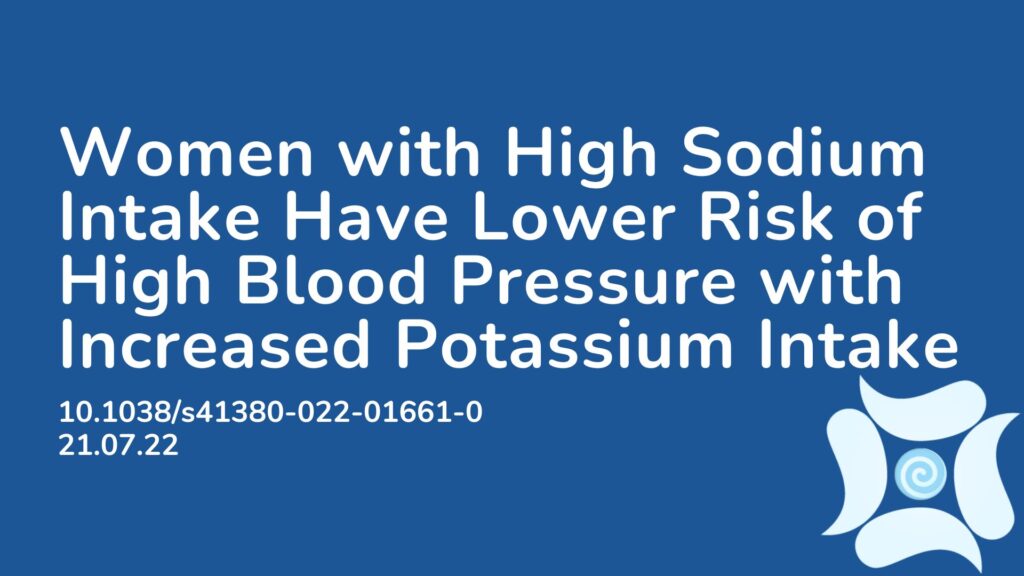Summary: The incidence of cardiovascular disease (CVD) is high in both men and women, however there are differences in risk amongst sex. Whilst the differences in risk amongst women and men has been studied extensively, little research has been done on the sex specific effects of sodium and potassium intake in regards to cardiovascular health. Research has shown that a potassium rich diet may have a beneficial effect on cardiovascular health such as blood pressure, in contrast to the harmful effects of a high sodium diet, yet it is unknown whether sex-specific differences in regards to potassium intake and cardiovascular benefits exist. The aim of this study was to analyse any associations between potassium intake and blood pressure, as well as whether CVD risk differs between men and women. It also aimed to understand the relationship of potassium intake with sodium consumption. The researchers included a cohort of 24, 963 participants, 11, 267 men and 13,696 women. The results demonstrate that there is a sex-specific association between potassium consumption and both blood pressure and CVD risk. The data also suggests that women with a high sodium intake have a lower risk of high blood pressure when increasing potassium intake.
Abstract:
Aims: A potassium replete diet is associated with lower blood pressure (BP) and lower risk of cardiovascular disease (CVD). Whether these associations differ between men and women and whether they depend on daily sodium intake is unknown.
Methods and results: An analysis was performed in 11 267 men and 13 696 women from the EPIC-Norfolk cohort. Twenty-four hour excretion of sodium and potassium, reflecting intake, was estimated from sodium and potassium concentration in spot urine samples using the Kawasaki formula. Linear and Cox regression were used to explore the association between potassium intake, systolic BP (SBP), and CVD events (defined as hospitalization or death due to CVD). After adjustment for confounders, interaction by sex was found for the association between potassium intake and SBP (P < 0.001). In women, but not in men, the inverse slope between potassium intake and SBP was steeper in those within the highest tertile of sodium intake compared with those within the lowest tertile of sodium intake (P < 0.001 for interaction by sodium intake). Both in men and women, higher potassium intake was associated with a lower risk of CVD events, but the hazard ratio (HR) associated with higher potassium intake was lower in women than in men [highest vs. lowest potassium intake tertile: men: HR 0.93, 95% confidence interval (CI) 0.87–1.00; women: HR 0.89, 95% CI 0.83–0.95, P = 0.033 for interaction by sex].
Conclusion: The association between potassium intake, SBP, and CVD events is sex specific. The data suggest that women with a high sodium intake in particular benefit most from a higher potassium intake with regard to SBP.
Article Publication Date: 21.07.22
DOI: 10.1038/s41380-022-01661-0




